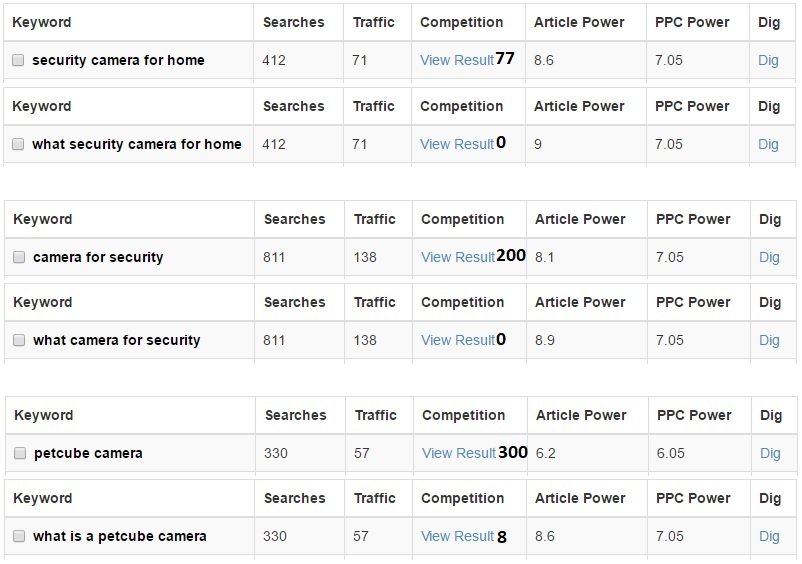Strange Keyword Tool Search Results
The WA Keyword Tool sometimes gives results that puzzle me and I haven't been able to find an explanation, so I'm writing this to show what I see and ask what is going on.
Sometimes I will find the number of searches & traffic returned for a long tail keyword to be exactly the same as the number of searches & traffic for a much shorter keyword.
The QSR and other numbers for both keywords appear to be correct, and I believe that the number of searches & traffic for the short keyword are correct. It appears to me that the searches & traffic for the long tail keyword are incorrect for some reason.
All of my examples today use the word "what" or "what is a" to make the long tail. In the past I've also seen it with "how to", but I was unable to duplicate those results today using the same keyword that caused it back in December.
Here are three pairs of examples and you can see where I've added the QSR for each.

I've seen this many times and even with search results in the 1000's, which seemed correct for the short keyword but impossible for the long tail keyword.
Can anyone explain what is happening?
Thanks,
Steve
Join FREE & Launch Your Business!
Exclusive Bonus - Offer Ends at Midnight Today
00
Hours
:
00
Minutes
:
00
Seconds
2,000 AI Credits Worth $10 USD
Build a Logo + Website That Attracts Customers
400 Credits
Discover Hot Niches with AI Market Research
100 Credits
Create SEO Content That Ranks & Converts
800 Credits
Find Affiliate Offers Up to $500/Sale
10 Credits
Access a Community of 2.9M+ Members
Recent Comments
9
Have a look here, perhaps it will be more clear (or nothing will be clear). These are stop words About misleading keywords and parameters
I think that explains it! I've searched for an answer a lot here on WA and never came across that information before, so thanks for sharing here.
It's too bad that Google isn't giving the searcher what they really want. And now every time I think I've found a golden nugget keyword I need to double check everything.
Steve
Yes, I know it is frustrating. I realized this for the first time when I could not rank with a keyword with QSr=0. It was "what is..." type.
It is. Jay suggests using the words with 'what' 'where'; which' 'why', 'how to'. So he appears to be unaware of the problem.
From what I've seen, a lot of times Google drops the "how to" or "what is" and just searches for the root keyword, thus the identical traffic approximations. It's hard to fully understand which QSR is correct though. But when even the higher of the two is under 300, that's definitely a good thing.
See more comments
Join FREE & Launch Your Business!
Exclusive Bonus - Offer Ends at Midnight Today
00
Hours
:
00
Minutes
:
00
Seconds
2,000 AI Credits Worth $10 USD
Build a Logo + Website That Attracts Customers
400 Credits
Discover Hot Niches with AI Market Research
100 Credits
Create SEO Content That Ranks & Converts
800 Credits
Find Affiliate Offers Up to $500/Sale
10 Credits
Access a Community of 2.9M+ Members
Because keyword data will often time consolidate the results of the search data if it is the same keyword or inclusive of the same keyword. That is the traffic you can expect with the long tail and the broad keywords, as per an estimate.
So this is a search data thing, which is more accurate with Jaaxy than it is within Google's directly (as we take all search engines into consideration), but ultimately they are based on the data that we are given.
The most important figure is the QSR, and that the keyword makes sense. If any keyword is getting SOME traffic and meet my QSR and make sense to my website (and grammatically), it is a winner in my eyes.